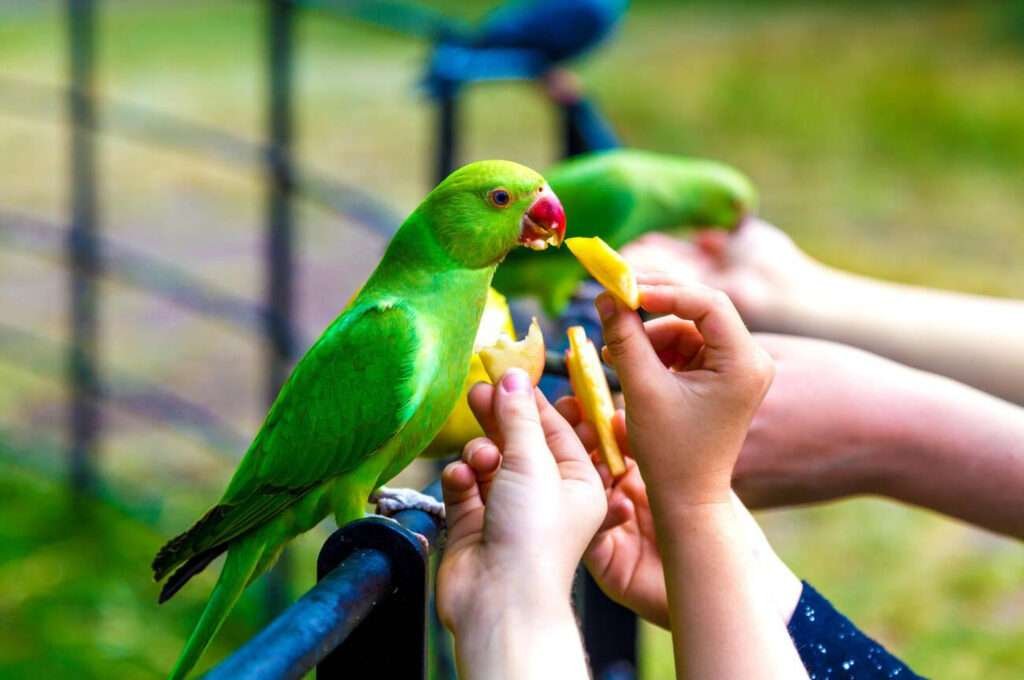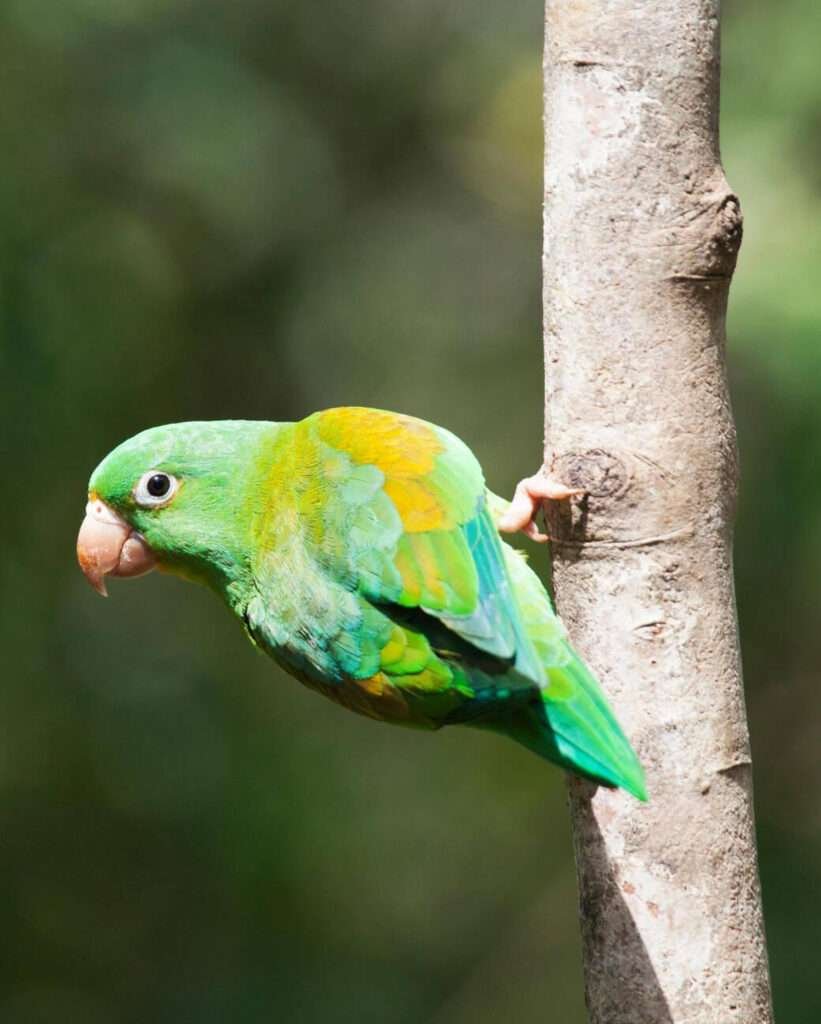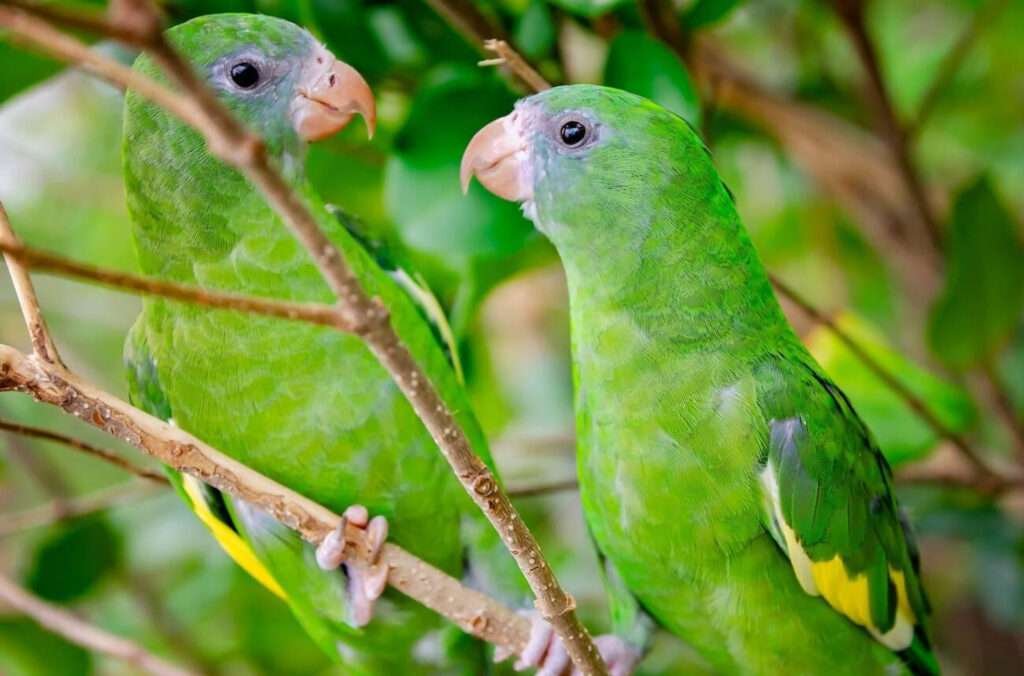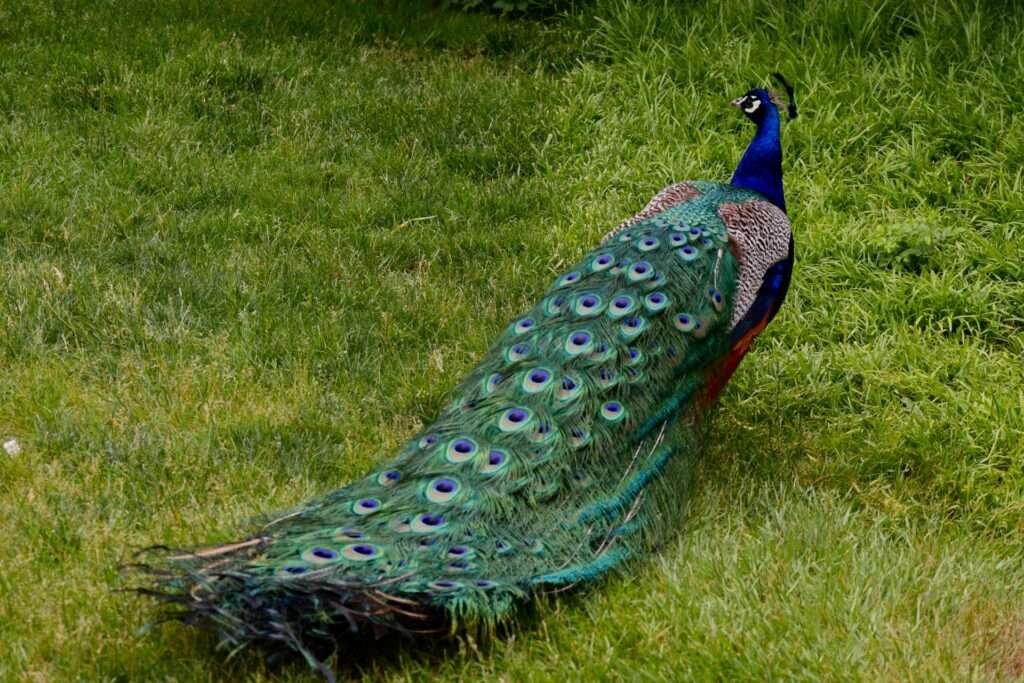Parakeets typically live between 5 to 15 years. The lifespan depends on care, diet, and environment.
Parakeets, or budgerigars, are among the most popular pets worldwide. They are known for their vibrant colors and charming personalities. These small, sociable birds originate from Australia and thrive in warm environments. A parakeet’s life expectancy can vary significantly based on several factors.
Proper nutrition, a safe and engaging habitat, regular exercise, and mental stimulation are crucial for their longevity. Regular veterinary check-ups can prevent common health issues and contribute to a healthier life. As pet owners, understanding the commitment to caring for parakeets is essential for ensuring they live a full and happy life. With the right care, these delightful birds can be a joyful addition to any home for many years.
Introduction To Parakeet Lifespan
Are you curious about how long parakeets live? These vibrant birds bring joy to households worldwide. Their lifespan might surprise you. Let’s explore the life expectancy of parakeets and what factors can make a difference.
What Is A Parakeet?
Parakeets, often called budgies, are small, colorful birds. They belong to the parrot family. Known for their playful nature, they make ideal pets for bird lovers. Their name means “little parrot” in Australian slang.
Factors Influencing Lifespan
Several key factors affect how long parakeets live. Diet, environment, and genetics play crucial roles. Proper care can lead to a longer, healthier life for these birds.
- Diet: Balanced nutrition is essential.
- Environment: Clean, safe habitats reduce stress.
- Exercise: Daily activity keeps them fit.
- Genetics: Some breeds live longer than others.
- Veterinary Care: Regular check-ups catch issues early.
In The Wild Vs Captivity
Understanding how long parakeets live is fascinating. Their lifespan varies greatly between wild habitats and human care. Let’s dive into the details.

Wild Parakeet Survival Challenges
Wild parakeets face numerous survival challenges. Harsh weather, predators, and scarce food sources make life tough, significantly impacting their lifespan.
- Predators: Birds of prey, snakes, and mammals hunt parakeets.
- Weather: Extreme temperatures and conditions can be deadly.
- Food scarcity: Finding daily nourishment is a constant struggle.
- Disease: Infections spread quickly without treatment.
- Human impact: Habitat loss and pollution add to their woes.
Benefits Of Domestic Care
In captivity, parakeets often enjoy longer lives. A constant food supply and protection from predators are key factors. They also receive medical care and attention, which boosts their health.
| Factor | Benefit |
|---|---|
| Regular meals | Nutrition needs are consistently met. |
| Shelter | Safe from predators and harsh weather. |
| Veterinary care | Preventive measures and treatments are available. |
| Companionship | Interaction with humans or other birds enriches life. |
These benefits contribute to a parakeet’s extended lifespan in captivity. With proper care, some live up to 20 years.
Average Lifespan Of Parakeets
You’re not just getting a pet when you welcome a parakeet into your home. You’re gaining a companion for a significant span of time. The average lifespan of parakeets varies but generally ranges between 5 to 10 years when cared for properly. Factors such as diet, exercise, environment, and genetics are crucial in their longevity. With the right care, these vibrant birds can fill your home with joy and chirping for many years.
Species-specific Lifespans
Not all parakeets live the same amount of time. Different species have different life expectancies. Here’s a quick look at some common parakeet types:
| Species | Average Lifespan |
|---|---|
| Budgerigar | 5-8 years |
| Monk Parakeet | 15-20 years |
| Plain Parakeet | 15 years |
| Ring-necked Parakeet | 20-30 years |
These numbers serve as a guide. With optimal care, some parakeets exceed these age ranges.
Record-holding Old Parakeets
Some parakeets defy the odds and live exceptionally long lives. Record holders are often well beyond the average. Here are a few:
- Charlie: Lived to be over 29 years old.
- Puck: Reached 24 years of age.
These parakeets received exceptional care and attention. They prove that, with love and proper care, birds can enjoy a lengthy, fulfilling life.
Dietary Impact On Parakeet Longevity
The dietary choices we make for our parakeets can significantly affect their lifespan. A balanced diet rich in essential nutrients can promote health and longevity, while foods lacking nutritional value or toxic to parakeets can lead to health issues and a shorter lifespan. Understanding the impact of diet on parakeet longevity is crucial for any parakeet owner.
Essential Nutrients For Parakeets
Like humans, parakeets need various nutrients to live a long, healthy life. Their diet should include:
- Vitamins such as A, D, E, and K for immune system support and overall health.
- Minerals like calcium and phosphorus for strong bones and beaks.
- Proteins to support growth and repair.
- Fibers for a healthy digestive system.
- Carbohydrates for energy.
These can come from a mix of seeds, pellets, fruits, and vegetables. Remember to provide fresh water daily.
Foods To Avoid
Some foods can be harmful or even toxic to parakeets. Here’s a list to keep in mind:
| Food Type | Reason to Avoid |
|---|---|
| Avocado | Contains persin, toxic to birds |
| Chocolate | It contains theobromine, which can cause poisoning |
| Alcohol | Can damage the liver and brain |
| Caffeine | Can cause cardiac malfunction |
| Salt | This can lead to electrolyte imbalance |
Stick to parakeet-safe foods and avoid these to help ensure a longer, healthier life for your feathered friend.

The Role Of Genetics
Genetics plays a crucial role in determining how long parakeets live. Understanding the genetic factors can help parakeet owners and breeders enhance the lifespan of these colorful birds.
Inherited Health Issues
Genetics directly influence the health of parakeets. Certain genetic traits can lead to inherited health issues, which may shorten their lifespan. Common genetic health problems in parakeets include:
- Liver disease: Often passed down through genes.
- Respiratory issues: These can make breathing difficult for the bird.
- Feather disorders: Impact the quality and appearance of their feathers.
Regular vet check-ups can help catch and manage these issues early, potentially extending the birds’ lives.
Selective Breeding For Longevity
Breeders can select parakeets with traits that promote longer life. This process is known as selective breeding. Key traits targeted include:
- Robust immune system: Leads to better overall health.
- Good genetics: Free from common inherited disorders.
- Strong physical features: Such as healthier wings and beaks.
This careful selection helps ensure the longevity of future generations of parakeets.
Environmental Factors
Understanding the environmental factors that impact parakeets is crucial. Their lifespan greatly depends on these conditions.
Ideal Habitat Conditions
Creating the perfect home for parakeets can ensure a long, healthy life. Here are the key elements:
- Temperature: Keep it between 65-75°F (18-24°C).
- Light: They need natural light but no direct sunlight.
- Space: A large cage allows for flight and exercise.
- Companionship: Parakeets thrive with a friend or two.
The Dangers Of Toxins
Toxins in a parakeet’s environment can shorten their lifespan. Be aware of these risks:
| Toxin | Source | Impact |
|---|---|---|
| Aerosols | Sprays, fresheners | Respiratory issues |
| Heavy metals | Paint, cages | Poisoning |
| Non-stick coatings | Cookware | Toxic fumes |
Keep these items away from your bird’s area to keep them safe and healthy.
Healthcare For Parakeets
Healthcare for Parakeets is crucial for their longevity and happiness. These vibrant birds bring joy to homes but need proper care to thrive. Understanding their healthcare ensures that they live a full, chirpy life. Let’s delve into the essentials of parakeet healthcare.
Regular Veterinary Check-ups
Just like cats and dogs, parakeets need regular vet visits. These check-ups can catch issues early. This is key to a long, healthy life for your feathered friend.
- Annual check-ups are recommended.
- Vets can spot signs of illness that are not always obvious to owners.
- They can advise on diet, exercise, and cage hygiene.
Common Ailments And Treatments
Parakeets can get sick. Recognizing common ailments helps you act fast, and timely treatments can save your pet’s life.
| Ailment | Symptoms | Treatments |
|---|---|---|
| Respiratory Infections | Tail bobbing, wheezing | Antibiotics, clean air |
| Psittacosis | Lethargy, eye discharge | Antibiotics, quarantine |
| Parasites | Itching, feather loss | Antiparasitic meds, cleaning |
Immediate vet consultation is needed if you spot these symptoms.
Social Interaction And Mental Health
Parakeets’ lifespans are greatly influenced by their social interaction and mental health. These vibrant birds thrive on companionship and mental stimulation, but loneliness and boredom can shorten their lives. Let’s delve into the critical role socializing plays in their lives and explore fun ways to keep their minds active.
Importance Of Socializing
Parakeets are naturally social creatures. In the wild, they live in large flocks and constantly interact with one another. This interaction is key to their well-being. Keeping a single parakeet alone can lead to stress and depression, which may reduce their lifespan. Bonding with their owners or having a feathered friend can make a significant difference.
- Companionship prevents loneliness.
- Interactions keep their minds sharp and engaged.
- Playing with other birds or humans can increase their happiness and longevity.
Toys And Activities To Stimulate
Mental stimulation is as important as social interaction. To stay healthy, parakeets need an environment filled with toys and activities. Toys not only keep them busy but also provide essential mental challenges.
| Toys | Benefits |
|---|---|
| Mirrors | Encourage social behavior and self-recognition. |
| Ladders | Promote exercise and exploration. |
| Swings | Improve balance and offer fun. |
| Bells | Stimulate their hearing and curiosity. |
Rotate toys regularly to keep their environment new and exciting. Introduce games that involve learning and problem-solving. These activities will ensure your parakeet’s mind stays active, essential for a long and happy life.
Signs Of Aging In Parakeets
Just like us, parakeets show signs of aging. Recognizing these signs helps ensure that our feathered friends live their golden years in comfort. Let’s explore the physical changes and behavioral indicators that signal a parakeet is entering its senior years.
Physical Changes
As parakeets age, physical transformations become noticeable. Here are key signs:
- Feathers may lose their luster, appearing duller with less vibrant colors.
- Some birds develop arthritis, noticeable in their posture and movement.
- Eyes can appear cloudy, indicating possible vision loss.
- Beaks and nails might overgrow, requiring more frequent trimming.
Behavioral Indicators
Behavior changes are as telling as physical ones:
| Behavior | Indication |
|---|---|
| Decreased Activity | Less play, more rest |
| Changes in Vocalization | Quieter or altered chirps |
| Eating Habits | Less appetite or trouble eating |
| Social Interaction | Withdrawal from others |
Monitoring these signs ensures your parakeet gets the right care at the right time.
Ensuring Quality Of Life In Old Age
As parakeets enter their golden years, their needs evolve. Providing a nurturing environment can extend both the quality and duration of their lives. Understanding how to adapt care is essential for senior parakeets to thrive. Let’s explore the adjustments required for these colorful companions as they age.
Adapting Care For Senior Parakeets
Senior parakeets demand special attention to remain healthy and happy. As they age, their energy levels often decrease. It’s crucial to modify their habitat to suit their changing abilities.
- Lower perches to prevent falls
- Softer foods to ease eating
- Warmer cage areas to combat cold sensitivity
- Gentle handling to reduce stress
- Regular vet check-ups for early issue detection
Keep their minds active with new, simpler toys. Monitor their weight and adjust their diet as needed. A comfortable, accessible, and safe environment is key.
When To Say Goodbye
Deciding when to say goodbye to a beloved pet is heartbreaking. Watch for signs that suggest a decline in their quality of life:
| Sign | Meaning |
|---|---|
| Lack of appetite | They may be in pain or unwell. |
| Less chirping | This could indicate depression or discomfort. |
| Difficulty moving | Joint issues or weaknesses may be present. |
| Sleeping more | Increased fatigue is common in old age. |
Consult with a veterinarian to understand the options. In these tough times, prioritize your parakeet’s comfort and dignity. Emotional support for the family is also important.
Frequently Asked Questions
How Long Do Parakeets Live As Pets?
Parakeets typically live 5 to 10 years as pets, but proper care can extend their lifespan up to 15 years.
Do Parakeets Need Time Out Of Cage?
Yes, parakeets require daily time outside their cage to exercise, explore, and interact for mental and physical well-being.
How Can You Tell How Old A Parakeet Is?
Determining a parakeet’s age can be tricky. Check leg bands for birth details or observe their eyes and feathers. Young parakeets have black eyes and striped feathers, which fade with age.
Can I Leave My Parakeets For 3 Days?
Yes, parakeets can be left for 3 days with adequate food, water, and a safe environment. Ensure their cage is secure and away from potential hazards.
Conclusion
Understanding the lifespan of parakeets helps us provide them with the care they need. Typically, these vibrant birds live between 7 to 14 years, but they can thrive even longer with optimal care. Remember, a healthy diet, a clean environment, and regular social interaction can make all the difference.
Cherish every moment with your feathered friends, and aim to give them the best life possible.




